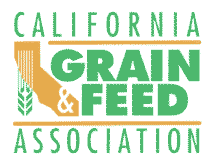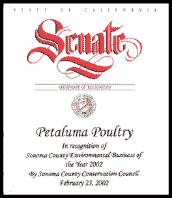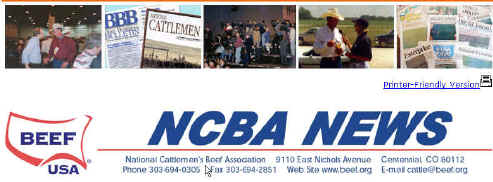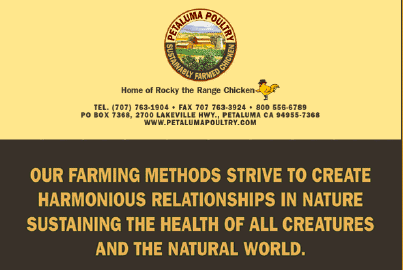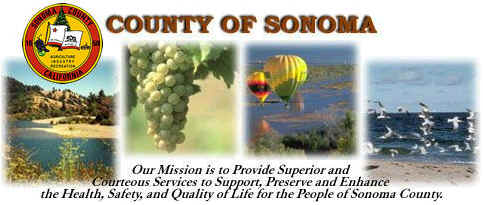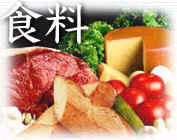(from
The Japan Times on April 5, 2002)
Secure
food safety
Never before, perhaps, has a government advisory panel made such a
scathing attack on public policy. The final report on bovine spongiform
encephalopathy, or BSE, popularly known as mad cow disease, submitted
Tuesday by a 10-member investigative committee, points out that the
government made a "grave policy mistake" in dealing with the
problem. It also makes clear that the institutional and legal framework
for securing food safety is "defective" and that the collusive
ties between politicians and bureaucrats "contributed to opaqueness
in policymaking."
The committee, consisting entirely of private experts, has done a
remarkable job. It has examined mountains of data presented by the
agriculture and health ministries and has disclosed everything it
discussed. The report was prepared with no help from bureaucrats. The
result is an indictment of structural defects in food-safety
administration.
Indeed, the report marks a milestone in the nation's administrative
history, not only because of its sharp criticism of food-safety policy
but also because of the way in which the investigative committee was
run. "We have had a majority of people behind us," said the
chairman, Mr. Masao Takahashi, professor emeritus at Kagawa Nutrition
University.
Now the ball is in the court of Prime Minister Junichiro Koizumi's
administration. The task ahead, of course, is to revamp food safety
administration along the lines proposed by the report, with the primary
focus on consumer protection. Basically, that is the only way to restore
public trust in the safety of beef and related foods. Creating an
independent food safety watchdog -- a key committee recommendation -- is
a pressing priority.
The report is a woeful reminder that the government initially had
little or no real sense of crisis about BSE, much less a plan of action
to prevent it. Bureaucrats failed to learn from the mistakes committed
by European nations in allowing the disease to spread as it did. In
other words, the government showed itself to be incompetent as well as
negligent in coping with the crisis.
Japan continued to import contaminated meat-and-bone meal, the cattle
feed believed to be the source of BSE, from Europe in the 1990s. So it
was a matter of time before cows here contracted the disease. But no
action was taken to ban the use of the feed; only nonbinding
"administrative guidance" was given, meaning that cattle
farmers were left to their own devices. Thus the government committed a
"grave policy mistake."
Warnings from the World Health Organization and the European Union
were all but ignored despite the growing need for international
cooperation in disease prevention. Details of those warnings were not
disclosed here. In 1990, when the number of BSE-infected cattle sharply
increased in Britain, the British government sent a report to the
Ministry of Agriculture, Forestry and Fisheries on its measures to ban
the use of meat-and-bone meal, but little heed was given to the
document.
Thus the government passed up a number of opportunities to place its
own ban on the bone meal. In 1996, a government council heard an expert
opinion calling for a ban, but the agriculture ministry lacked the will
to take preventive action because the ministry's chief concern was to
promote agriculture, not to protect consumers. Says the committee
report: "Japan's laws, systems, policies and administrative
organizations (related to agriculture) are legacies from the period of
food shortages in which producers took precedence over consumers."
The producer-first policy was also promoted by Diet members elected
from rural constituencies, particularly those of the Liberal Democratic
Party. "Many legislators themselves formed powerful pressure groups
to pursue producer-oriented policies," says the report, without
mentioning the LDP by name. Absent is the description "LDP
agricultural tribe," a reference made earlier in the draft of the
report.
The BSE problem has also revealed a serious lack of coordination
between the agriculture and health ministries, which followed their own
separate safety policies. This is a major flaw in vertically integrated
administration that must be corrected at all cost.
The proposed reforms represent steps in the right direction. These
include (1) giving top priority to consumer protection, (2) establishing
an integrated safety system reaching from "the farm to the
table," (3) introducing risk-analysis methods, and (4) respecting
advice from scientists and other specialists.
The government has its work cut out: drawing up specific reform plans
in six months, as recommended by the committee, and putting them into
practice without fail. In doing so, the government, from Prime Minister
Koizumi on down, should listen with an open mind to what consumers and
producers have to say.
(from an article appeared in The Japan
Times: April 5, 2002)
